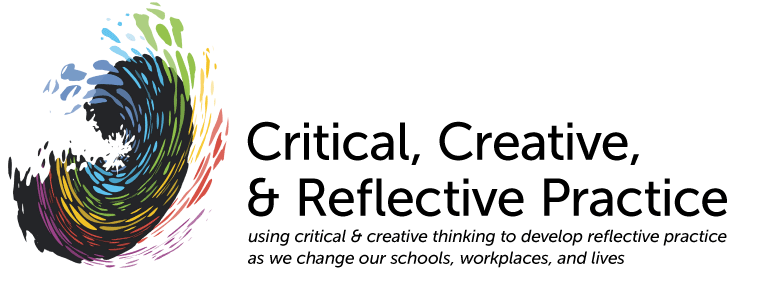Epidemiological Thinking and Public Health
NOTES ON TEACHING/LEARNING INTERACTIONS
3 Feb 08, incomplete; rough draft
including
Written assignments
TBA
Individual assignments are not graded, but students may often be asked to revise and resubmit in response to the instructor's comments before the assignment is deemed complete (see dialogue around written work).
a. Weekly additions to
glossary of terms from chapters of the Gordis text illustrated by examples from the student's field (weeks 2-14).
[include rationale here & Instructions on glossary page]
b. Weekly sketches of ways that the concepts, methods, and problems of that week might be applied to a project in their own area of interest (weeks 2-13).
[include mention that this is an experiment; that examples may be linked as they come in; that these may be done on personal wiki pages]
c. Weekly annotations of references, either the common readings when the student is leading the discussion or the supplementary or additional references for other weeks (weeks 2-14).
[Include links to previous years' annotated refs]
[edit this using text from 07 syllabus] Think of these as resources you are providing for other students (current and future), who might not have time to read the article OR who might need stimulation/guidance about what they decide to make time to read. You may edit an existing entry to improve its informativeness, but if you have a difference of interpretation, indicate that without censoring the previous authors' interpretation.
d. Final portfolio selection and essay.
Participation and contribution to the class process (19 items)
e. Prepared participation in class meetings (14 items)
Prepared participation and punctual attendance at class meetings are expected, but allowance is made for other priorities in your life. I do not require you to give excuses for absence, lateness, or lack of preparation. Simply make up the 80% of participation items in other ways (f-h).
[include discussion of prep needed to make the most of the workshop]
f. Conferences (2 items)
for discussion of comments on assignments (see
Dialogue around written work), your portfolio projects, discussion leading, and the course as a whole. They are important to ensure timely resolution of misunderstandings and to get a recharge if you get behind.
g. Discussion (co-)leading (2 items)
[insert from 07 syllabus & Epi07Eval]
h. Peer commentary (1 item)
After the draft portfolio selection and essay is completed, you should comment on another student's draft and send me a copy. Keep Elbow's
Varieties of responses in mind when you decide what approaches to commenting you ask for as a writer and what to use as a commentator. In the past I made lots of specific suggestions for clarification and change in the margins, but in my experience, such suggestions led only a minority of students beyond touching up into re-thinking and revising their ideas and writing. On the other hand, I believe that all writers value comments that reassure them that they have been listened to and their voice, however uncertain, has been heard.
Other Processes in the Course
Workshop
TBA
Submission of Writing in a Professional and Instructor-friendly manner
[adjust according to workshop sketch model]
Duplicate copies r
eplace by note about submission on wiki
Students should submit two copies of all typed assignments because I want to give you one back with my comments so you have it when you read them. (I keep the other plus a carbon copy of my comments in a portfolio that I can refer back to.)
Dialogue around written work
Rationale for the Assessment system
The different assignments are commented on then "graded" either OK or revise & resubmit. An automatic B+ is awarded for 80% (approx.) of written assignments OK/RNR and participation items fulfilled. The rationale for this system is to keep the focus of our teaching/learning interactions on your developing through the semester. It allows more space for students and instructor to appreciate and learn from what each other is saying and thinking. My goal is to work with everyone to achieve the 80% satisfactory completion level. Students who progress steadily towards that goal during the semester usually end up producing work that meets the criteria in the syllabus for a higher grade than a B+.
Keep track of your own progress. To gauge whether you are on track for at least a B+, simply note whether you have submitted 80% of the assignments and attended 80% of the classes. If you are behind do NOT hide and do NOT end the semester without a completion contract. You are free to do more than 80% of the assignments and fulfill more than 80% of the participation items, but it does not hurt your grade to choose strategically to miss some in light of your other work and life happenings. Ask for clarification if needed to get clear and comfortable with this system.
Learning Community and email group/list
Individually and as a group, you already know a lot about health sciences. You can learn a lot from each other and from teaching others what you know. The email group or list (i.e., emails sent to epicourse@googlegroups.com) can be used to help the community develop.
Taking stock (both of student's development and of course)
during semester ("formative evaluation")
- I encourage students to approach this course as a work-in-progress. Instead of harboring criticisms to submit after the fact, we can find opportunities to affirm what is working well and suggest directions for further development.
at end of semester
- Final portfolio by student
- This involves multiple angles on course evaluation, including written evaluations during class, Process reviews and planning for your ongoing PD. With the aim of:
- a) feeding into your future learning (and other work), you take stock of your process(es) over the semester;
- b) feeding into my future teaching (and future learning about how students learn), I take stock of how you, the students, have learned.
